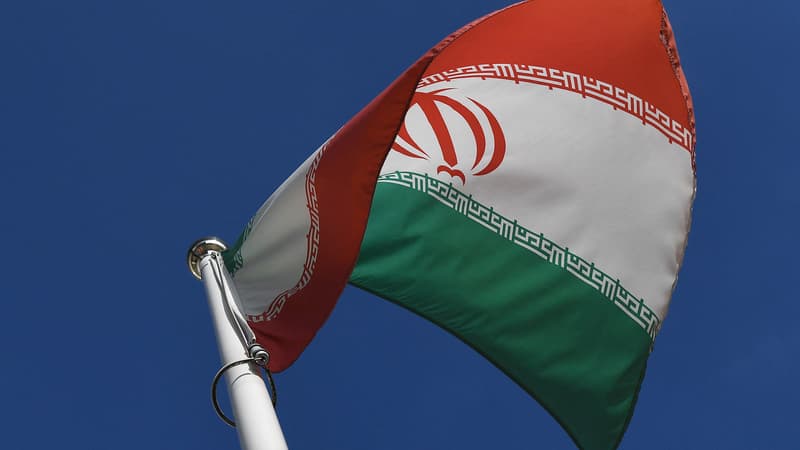The UN sanctions against Iran were restored on Saturday night after the failure of the negotiations in their nuclear program with the Westerners, who immediately called to resume the path of diplomacy.
After the Green Light of the UN Security Council, the strong sanctions, ranging from an embargo on economic measures, have once again been in force since Saturday 8:00 pm New York time (Sunday 00:00 GMT), ten years after its uprising.
“Refrain from any equal user action.”
But the Europeans and the Americans immediately assured that this did not mark the end of diplomacy. The United States Secretary of State, Marco Rubio, called Tehran to “accept direct discussions, in good faith,” while asking all states to “immediately” the sanctions to “pressure” about Iran.
British, French and German foreign ministers have assured them in a joint statement that they would continue to seek “a new diplomatic solution that guarantees that they will never acquire nuclear weapons.”
Meanwhile, they have asked Tehran “to refrain from any staggered action.” According to the International Atomic Energy Agency (AIEA), Iran is the only country not equipped with nuclear weapons to enrich uranium at a high level (60%), near the 90% technical threshold necessary for the manufacture of the atomic bomb.
Tehran defends itself from having such ambitions at the military level, but insists on its right to nuclear for civil purposes, particularly to produce electricity. The nuclear agreement (JCPOA) concluded in 2015 between Iran and the main powers limited this rate by 3.67%.
According to the OIEA, Iran has about 440 kilos of uranium enriched at 60%, an action that, if enriched up to 90%, would allow the country to acquire eight to ten nuclear bombs, according to European experts.
Iranian President Massaud fishshkian said on Saturday that the United States had demanded that Iran give him “all” enriched uranium in exchange for an extension for three months of suspension of sanctions, qualifying this request as “unacceptable.”
“They want me to give everyone our enriched uranium,” said fishshkian on television. “In a few months, they will have a new requirement,” added the Iranian President.
Fear of a new war
The United Kingdom, France and Germany, a group of countries called E3, caused the “Snapback” mechanism that made possible within 30 days restore the sanctions raised in 2015 after the Iranian nuclear agreement within 30 days.
Even before the formal recovery of the sanctions, Iran recalled on Saturday “for consultations” to its ambassadors in the three countries, according to state television. “The current (economic) situation was already very difficult, but will get worse,” says Dariush, who prefers to silence his last name.
“The impact of sanctions’ performance is already obvious: the exchange rate (from the dollar against the national currency, the rial) increases, and this leads to an increase in prices” of consumer goods, this 50 -year -old engineer declares AFP.
On Saturday, a dollar was exchanged in the black market against around 1.12 million rials, a record level, according to several exchanges of currency sites. An AFP journalist noticed an unusual crowd in the great Bazaar of Tehran in the jewels to buy gold, refuge value.
“Most people fear a new war due to Snapback,” adds Dariush, alluding to Israeli and American attacks in June for 12 days against Iran.
“Concrete gestures”
The highest level meetings have multiplied throughout the week outside the UN General Assembly in New York to try to find a diplomatic solution.
But the European trio judged that Tehran had no “concrete gestures” to meet its three conditions: resumption of negotiations with the United States; Access to the IEA inspectors in Natanz, Fordo and Ispahan sensitive nuclear sites, bombarded in June by Israel and the United States; Process to ensure the enriched uranium stock.
Russia and China have proposed, without success, on Friday to the UN Security Council to extend the JCPOA that expires on October 18, to give more opportunities to diplomacy.
In this context, Russia’s Foreign Minister Sergei Lavrov accused Westerners on Saturday of “sabotage” diplomacy, repeating that for Moscow, the restoration of sanctions is “legally invalid” and that the decision “cannot be applied.”
In 2015, France, the United Kingdom, Germany, the United States, Russia and China had concluded with Tehran an agreement, providing Iranian nuclear activities in exchange for lifting sanctions. The United States, under President Donald Trump’s first mandate, decided in 2018 to withdraw and restore his own sanctions.
Iran freed himself from certain commitments, especially in the enrichment of uranium. “Iran has never sought and will never seek to make an atomic bomb,” the Iranian president told the UN this week.
Source: BFM TV


